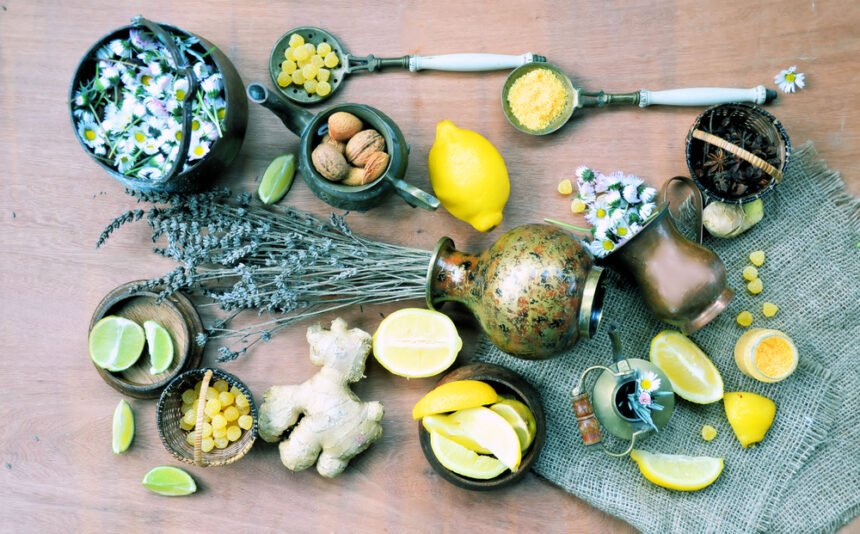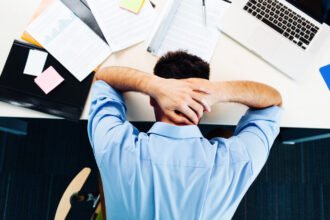It seems like we’re all pretty anxious. Even before the beginning of a global pandemic, we lived in an age of constant stress and nervousness. Our devices, while amazing, constantly bring us news about potential disaster, and give us the opportunity to constantly envy each others’ lives on Instagram. Changing economic prospects make us unsure about where our lives are going. It’s no wonder that a full third of Americans, according to the Census Bureau, now display signs of anxiety and depression.
For some, the instinctive response to anxiety might be to seek medical help. And, for some, that might be necessary. But there are a large variety of non-pharmaceutical remedies for anxiety that are cheaper and less likely to have side effects—remedies that actually have solid scientific evidence behind them. Let’s review some of the best.
- L-Theanine
Some people report that tea has a less “buzzy” stimulant effect than coffee does. Part of the reason for this is L-Theanine, a compound that promotes focus and calm, which is found in large amounts in tea. However, if you’re not a tea drinker, you don’t have to switch, since L-Theanine is available in supplement form.
Even better, studies associate L-Theanine with benefits beyond stress reduction; increased verbal fluency, better executive function, and improved sleep were also reported. L-Theanine is kind of a no-brainer.
2) CBD Oil
CBD products have been taking the market by storm, for good reason. CBD has great anti-anxiety and pain-relieving qualities, supported by scientific evidence. It targets the endocannabinoid system, a biological network in your body that’s responsible for, among other things, the feeling of relaxation and exhilaration following vigorous exercise (AKA “runner’s high.”) As you might expect based on this, CBD users generally report a sustained feeling of relaxed focus.
There are several convenient ways to take it. For many, taking it in oil form is best—it’s nearly tasteless, and one dropper of oil under your tongue will do it. Other edible forms like CBD gummies are also available.
Some people hesitate to take CBD because it’s associated with marijuana, and therefore might seem like a “drug” in the recreational sense. But this is a misunderstanding. Marijuana’s effects come from a long list of natural chemicals. The one that gets you high and loopy and craving snacks is THC, not CBD. CBD isn’t psychoactive at all, let alone hallucinatory or debilitating.
So, there’s no reason to sleep on taking CBD for your anxiety. It could be anything from a small help to a life-changing remedy. Users also report anti-depressant effects and a decrease in social anxiety. Given that social isolation is a factor in anxiety, this last effect can be an especially helpful side bonus.
3) Vitamin D
Humans evolved in the sunlight. It only stands to reason that we need it. And, sure enough, Vitamin D deficiency is associated with anxiety and other negative mental effects.
Vitamin D supplements are widely available. However, they might not work at all. This also makes sense—in our ancestral environment, we didn’t usually receive our sunshine in pill form. However, there’s a huge exploding Vitamin D supplement in the sky every day that’s available for free. Even on cloudy days, you get a significant dose of Vitamin D from the sun.
So, just go outside more.
4) Omega-3s
Omega-3 fatty acids, found in a variety of foods but especially oily fish, have been shown to reduce anxiety. Here’s a list of foods that are highest in Omega-3s. A few servings of any one of the top contenders will give you more than enough.
If you’re not a fan of fish, fortunately, unlike in the case of Vitamin D, supplementation with Omega-3 oil is effective. However, vegetable sources of omega-3s aren’t as effective, so fish oil (or krill oil) is the gold standard. If you’re worried about fish breath, you can get fish oil pills with enteric coating, a substance that prevents them from being broken down until they reach your stomach.
5) Mindfulness
Mindfulness is a hot buzzword these days, advocated as a cure for everything from depression to aggression. Given all the hype behind it, you’d be forgiven for wondering if it wasn’t just hippie nonsense. However, that’s not the case. Evidence indicates that it’s quite effective as an anxiety treatment.
The exact mechanism of action isn’t known yet. However, it probably has something to do with a brain region called the Anterior Cingulate Cortex, which regulates executive function and attention. Mindfulness practices improve its functioning, allowing you to stay focused on the present moment. As any anxiety sufferer knows, a lot of anxiety has to do with imagining some sort of dreadful future that you have no control over. Mindfulness can give you the power to rein that in.
It’s also fairly simple to begin with. While “mindfulness” is a category that includes skilled meditation that takes practice, it also includes brief engagements with the present moment. You can simply focus on the in-and-out of your breath for a few minutes, bringing awareness back to it when your thoughts go astray. Walking meditation is also a traditional practice—just bringing awareness to your footfalls as you move down the road.
6) Rhodiola Rosea
Rhodiola Rosea is a herb that’s been used by people from Scandinavia, Russia, and China for many years, as a natural upper as well as a cure for fatigue. Evidence indicates that, among other effects, it increases the activity of the parasympathetic nervous system, which is the half of the nervous system that has a “slowing” effect on mental and physical processes. For some, this makes it a great anti-anxiety treatment.
However, it’s not perfect for everyone. A few users report that its stimulant effects make them anxious and irritable, which is obviously not great for an anti-anxiety treatment. So, experiment with caution, knowing that it’s a wonderful supplement for some, but a less wonderful supplement for a minority.
7) Chamomile
Sometimes, totally mundane herbal remedies recommended by grandmas can be effective. This is the case with chamomile, which is available in tea form basically everywhere tea is sold, as well as in pill form if you don’t like the taste. Long-term study has revealed that chamomile has mild (but measurable) positive effects on stress and anxiety. While it’s probably not the first or last thing you should reach for, it’s something to experiment with as a supplemental treatment, especially because it’s so inexpensive and so widely available.
Conclusion
As the above list reveals, treating anxiety doesn’t have to start with medication. Moreover, many of these remedies (like CBD, Vitamin D, and L-Theanine) have positive effects even beyond their anti-anxiety effects. Treating your anxiety non-pharmaceutically, then, can be a gateway to better health in general.
This doesn’t mean that medication can’t be a good thing. Depending on the severity of your anxiety, medication can be extremely helpful. But, as a first response, try going for a walk in the sunshine, taking some CBD and L-Theanine, and fitting a few mindful moments into your day.










